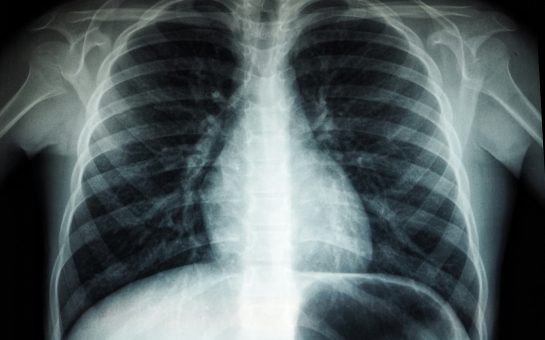A young Tameside mother-of-two hanged herself in a drunken ‘cry for help’ after her marriage crumbled due to her six-year addiction to red wine.
NHS worker Alison Holman, 34, would drink a glass of wine after she reported being stressed at work – but her favourite tipple spiralled into a habit in which she knocked back up to two bottles a night.
Although she managed to hold down her job as a health improvement officer instructing volunteers and teaching disabled children, Mrs Holman’s binge drinking impacted on her ten-year marriage to husband Anthony and she moved out of home leaving her two sons, aged five and nine, with him.
The hard-working brunette tried to get back on the wagon in a bid to patch up their relationship – but her attempt at reconciliation failed when she began drinking again and, after drowning her sorrows at home, warned friends she was going to kill herself.
She was found hanged last May in a bedroom at her home in Ashton-under-Lyne by a concerned work colleague who had received a string of text messages.
Police found an empty wine glass on her coffee table plus an empty wine bottle by a bin and then discovered six other empty wine bottles in a kitchen cupboard.
Tests showed she would have been three times over the drink drive limit and she had not left a suicide note.
At an inquest, a coroner said Mrs Holman was too under the influence of alcohol to intentionally taken her own life.
Afterwards her mother, Julie Iddon said: “It’s just very sad and was a cry for help because Alison had clearly crossed that fine line of being able to quit drinking at will.
“People need to know even more about the dangers of drinking and how it can affect you. I wish I knew the answer to what she was thinking but I don’t. I just always believed she didn’t intend to take her own life so I’m pleased that’s come out at the inquest.”
The hearing in Stockport was told Mrs Holman, who had studied a Higher National Diplomas in healthcare at Tameside College, first reported work-related stress to her doctor in 2007.
And in 2012, she had a referral for depression after reporting she had a history of excessive drinking dating back to 2008.
On July 27 2013 she was seen by the alcohol liaison service and split up with her husband later that year.
Mr Holman, a software developer, said: “We separated in about November 2013. Part of the reason was her drinking had increased. She was drinking a lot. That had been the case for quite a long time.
“It got to the stage that when she got home from work she would have one or two bottles of wine per night. The separation had not been intended to be permanent but things became more difficult.”
He said he last saw her for lunch on May 7 where ‘her frame of mind was fine’ and she was excited about going on a training course with work.
Later, he received a phone call from a friend telling him to go round to see Alison.
“She had been saying she wanted to kill herself,” said Mr Holman, 42. “I rang her straight away and it was hazy but I got the impression she wanted to kill herself.
“During the conversation she even said she had made a noose but I didn’t believe her. She was saying she was going to kill herself and I was saying ‘you have two lovely kids, why would you even do that?’
“She was saying ‘they don’t need me’. I decided to go round with the kids but, at that point, she did manage to convince me she was fine and I didn’t need to go round. She assured me she was fine and she was going to bed.”
The hearing was told Mrs Holman began a relationship with NHS volunteer Wayne Oldham after he met her on a course she was taking.
On the day she died the couple had a bust up over her helping him with his CV.
In a statement, Mr Oldham said: “Alison had described herself as alcohol dependant and averaged two bottles of wine per night.
“My belief was her alcohol consumption had increased since the separation. She was bubbly but got down when she drunk – but always seemed to bounce back.”
Mr Oldham said after he left her home on May 7 he knew she had two bottles of wine in the house but he didn’t speak to her for the rest of the evening and left his phone on silent.
When he woke the following day he had 11 missed calls and eight texts from Alison. One at 5.31pm said: “Considering the best way to kill myself.”
Mr Oldham added: “I just thought they were drunk texts.”
When he was informed by the college that she hadn’t turned up for work, he decided to go round to the house and, when he got no answer at the door, he climbed through a bathroom window and discovered her body.
Angela Lockley, a close friend of Mrs Holman, said: “She put a Facebook status saying she was feeling down. I text her saying ‘are you ok?’ and she said ‘no, I want to die’.
“She said ‘everything’ was wrong. I told her to focus on her children but she said ‘they don’t want me, they want to be with their dad.’ I rang her and she was crying and seemed very drunk.”
Miss Lockley told Alison to go to hospital but she refused. They kept talking and soon the conversation was said to have eased off as the pair began laughing and joking.
“She mentioned in the morning she had a session teaching a group with learning difficulties,” she said. “I said ‘promise to call me in the morning on your way to work’.”
Recording an open conclusion coroner, Joanne Kearsley said: “The alcohol intoxication might well have been a contributing factor in her state of mind. We know she had some difficulties with the separation but she wasn’t somebody who had a history of self-harm.
“I suspect the level of alcohol has contributed to the action she has taken. I’m not sure she intended to take her own life. She was having a very difficult time and feeling quite low and maybe it was a cry for help. I don’t think there is the evidence to say she intended to die.
“I think this is a young woman under the influence who was having a very difficult time and feeling quite low and impulsively acted on those feelings resulting in her death.
“In a logical, more rational mind, she could see there was more to live for.”
Story via Cavendish Press
Image courtesy of Facebook with thanks



